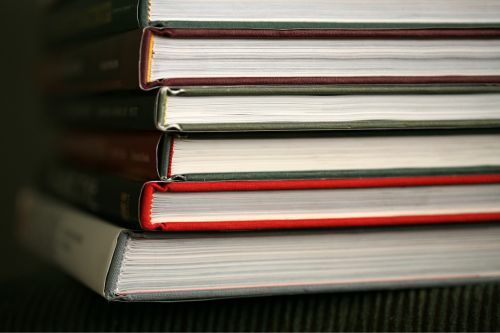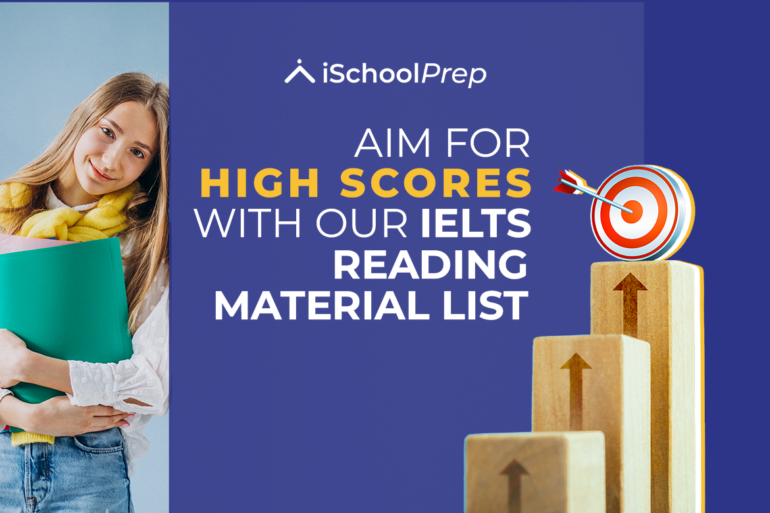Table of Contents
The IELTS (International English Language Testing System) is a pivotal step for those aiming to study, work, or live in an English-speaking environment. Preparing for the IELTS reading section requires access to a IELTS reading materials that can help test-takers familiarize themselves with the question types and topics they will encounter. This article will serve as a comprehensive guide to the best IELTS reading materials available for achieving high scores.
IELTS reading topics
The IELTS reading material section covers a broad range of topics. Test-takers can expect passages on social sciences, natural sciences, humanities, and more. To prepare effectively, it’s crucial to engage with texts on these subjects from authentic sources like newspapers, journals, and books.
Types of questions in IELTS Reading
Understanding the types of questions asked in the IELTS reading section is vital. Common question types include:
- Multiple choice
- Identifying information (True/False/Not given)
- Matching information
- Sentence completion
- Summary completion
Each question type tests different reading skills, such as skimming, scanning, and detailed reading.
Expanding horizons with varied IELTS reading materials
When preparing for the IELTS, it’s crucial to expose yourself to a broad spectrum of IELTS reading materials. This not only equips you with the skills to tackle the diverse range of texts in the exam but also enhances your overall language proficiency. Here’s how you can diversify your study materials effectively:
Academic journals
Academic journals are the epitome of formal, structured writing. They often contain complex ideas and specialized vocabulary. By regularly reading articles from these journals, you can develop an ability to comprehend and analyze dense material, a skill that will serve you well in the IELTS reading section. Focus on abstracts and research summaries to condense learning time while still gaining exposure to high-level academic language.
Newspapers and magazines
Newspapers and magazines are excellent for practicing quick reading and for learning to distinguish between main ideas and supporting details. They also keep you informed about current events, which can be a topic of conversation in the Speaking section. Prioritize editorials and opinion pieces, as they often use argumentative structures similar to those found in IELTS passages.
Books
Incorporating both fiction and non-fiction books into your IELTS reading practice can significantly improve your reading stamina and comprehension. Fiction books can introduce you to a variety of writing styles and narrative structures, while non-fiction books, particularly in the sciences and humanities, can familiarize you with the type of content you may encounter on the test.
Effective reading strategies for IELTS

To excel in the IELTS Reading section, it’s not just about what you read, but how you read it. Here are some strategies to enhance your reading skills:
- Skimming and scanning: Practice skimming texts for the main idea and scanning for specific information, as these are crucial skills for the test.
- Time management: Develop the ability to manage your time effectively during the test, ensuring you can answer all questions within the allotted time.
- Vocabulary building: Expand your vocabulary by learning new words in context and understanding their usage.
Expanding your IELTS reading horizons
When preparing for the IELTS, it’s crucial to diversify your reading sources to cover a broad spectrum of topics and writing styles. Here’s how to incorporate IELTS reading material into your study routine:
Delving into scientific articles and reports
Scientific articles and reports often feature complex data and specialized terminology, which can be challenging to decipher. Regularly reading such materials can train you to grasp intricate information and understand context-specific vocabulary. Websites of scientific journals or institutions like NASA, WHO, and various academic publications are excellent sources for such reading practice.
Exploring literature and humanities
Literature, including classic novels, modern fiction, and essays, offers rich language and varied narrative styles. Similarly, humanities texts covering history, philosophy, and social sciences present arguments and perspectives that require critical analysis. These can enhance your ability to understand subtleties in language and tone, which are useful skills for the IELTS reading section.
Business and economics articles
For those with interests in commerce, reading business and economics articles can be doubly beneficial. These articles often discuss current events with a focus on analysis and opinion, helping you to develop the ability to discern main ideas and viewpoints — a key skill for IELTS reading tasks.
Technical manuals and guides
Technical writing, found in manuals, how-to guides, and FAQs, is structured differently from academic or journalistic writing. It’s direct and often includes procedural or descriptive language. Familiarity with such texts can prepare you for a range of IELTS reading material, ensuring you’re not thrown off by less common formats.
Leveraging technology for enhanced IELTS reading practice

Technology has transformed the way we prepare for exams, offering tools that cater to diverse learning styles and needs. Here’s how you can leverage technology to boost your IELTS reading preparation:
Mobile apps
There are numerous mobile apps designed specifically for IELTS preparation, many of which focus on the Reading section. These apps often include practice tests, daily reading exercises, and vocabulary builders. They provide immediate feedback, allowing you to track your progress and focus on areas that need improvement.
Online forums
Participating in online forums dedicated to IELTS preparation can be incredibly beneficial. These communities allow you to share resources, discuss strategies, and seek advice from peers who are also on the journey to IELTS success. Engaging in these discussions can provide moral support and valuable insights into effective reading practices.
E-books and online articles
The internet is a treasure trove of e-books and articles on virtually every topic imaginable. Utilize these resources to practice reading on a screen, as this can help you prepare for the computer-delivered IELTS test. Additionally, reading online can help you practice navigating texts through scrolling and clicking, which is a different experience from reading on paper.
By incorporating a mix of traditional and digital reading materials into your study routine, you can develop a well-rounded approach to mastering the IELTS Reading section. Remember, the key is consistent practice and a willingness to step out of your comfort zone to engage with new and challenging content.
Key takeaways
- Diversify your reading materials to include academic texts, newspapers, and books.
- Employ technology like mobile apps and online resources to enhance your reading practice.
- Understand the types of questions in the IELTS Reading section and tailor your practice accordingly.
Your IELTS reading material is a gateway to achieving a high score in the Reading section. By diversifying your resources, implementing effective reading strategies, and personalizing your practice, you can enhance your comprehension skills and speed, essential for success in the IELTS.
Remember, consistent practice with a wide range of materials will not only prepare you for the types of passages on the test but also build the endurance needed for this intensive section. With the right approach and resources, you can approach the IELTS Reading section with confidence and the skills needed to excel.
Like this article? Read next: IELTS exam booking | Guide to securing your test date 2023!
Embark on your IELTS journey with confidence by leveraging the tailored resources from iSchoolPrep. From comprehensive reading materials to personalized guidance, we equips you with the tools to excel. Contact us today and transform your IELTS preparation into a success story.
FAQs
Q1. What types of texts are included in the IELTS Reading section?
Ans: The IELTS Reading section includes a variety of text types, such as academic articles, literature, reports, and opinion pieces, to test a wide range of reading skills.
Q2. How can I improve my reading speed for the IELTS?
Ans: Practice regularly with timed reading exercises, focus on skimming and scanning techniques, and expand your vocabulary to improve your reading speed.
Q3. Are there any specific books I should read for IELTS preparation?
Ans: While there are no specific books required, reading a variety of complex texts, such as academic journals and literature, can be beneficial.






